Business
Canada Scrambles To Secure Border After Trump Threatens Massive Tariff
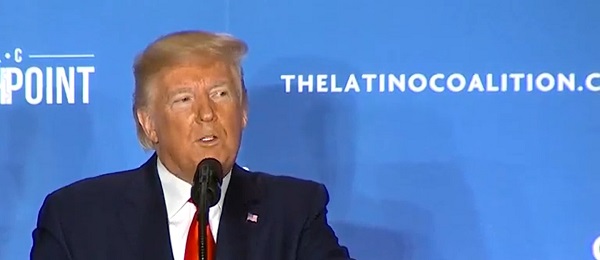

From the Daily Caller News Foundation
By Jason Hopkins
The Canadian government made clear its beefing up its border security apparatus after President-elect Donald Trump threatened to impose sweeping tariffs against Canada and Mexico if the flow of illegal immigration and drugs are not reined in.
Trump in November announced on social media that he would impose a 25% tariff on all products from Canada and Mexico unless both countries do more to limit the level of illicit drugs and illegal immigration entering into the United States. In response, Canada Prime Minister Justin Trudeau met with the president-elect at his residence in Mar-a-Largo and his government has detailed what more it’s doing to bolster immigration enforcement.
“We got, I think, a mutual understanding of what they’re concerned about in terms of border security,” Minister of Public Safety Dominic LeBlanc, who accompanied Trudeau at Mar-a-Largo, said of the meeting in an interview with Canadian media. “All of their concerns are shared by Canadians and by the government of Canada.”
“We talked about the security posture currently at the border that we believe to be effective, and we also discussed additional measures and visible measures that we’re going to put in place over the coming weeks,” LeBlanc continued. “And we also established, Rosemary, a personal series of rapport that I think will continue to allow us to make that case.”
Trudeau’s Liberal Party-led government has pivoted on border enforcement since its first days in power.
The Royal Canadian Mounted Police (RCMP) — the country’s law enforcement arm that patrols the border — is preparing to beef up its immigration enforcement capabilities by hiring more staff, adding more vehicles and creating more processing facilities, in the chance that there is an immigration surge sparked by Trump’s presidential election victory. The moves are a change in direction from Trudeau’s public declaration in January 2017 that Canada was a “welcoming” country and that “diversity is our strength” just days after Trump was sworn into office the first time.
While encounters along the U.S.-Canada border remain a fraction of what’s experienced at the southern border, activity has risen in recent months. Border Patrol agents made nearly 24,000 apprehensions along the northern border in fiscal year 2024 — marking a roughly 140% rise in apprehensions made the previous fiscal year, according to the latest data from Customs and Border Protection.
“While a change to U.S. border policy could result in an increase in migrants traveling north toward the Canada-U.S. border and between ports of entry, the RCMP now has valuable tools and insights to address this movement that were not previously in place,” read an RCMP statement provided to the Daily Caller News Foundation. “New mechanisms have been established which enable the RCMP to effectively manage apprehensions of irregular migrants between the ports.”
Trudeau’s pivot on illegal immigration enforcement follows the Canadian population growing more hawkish on the issue, public opinion surveys have indicated. Other polls also indicate Trudeau’s Liberal Party will face a beating at the voting booth in October 2025 against the Conservative Party, led by Member of Parliament Pierre Poilievre.
Trudeau’s recent overtures largely differ from Mexican President Claudia Sheinbaum, who has indicated she is not willing to bend the knee to Trump’s tariff threats. The Mexican leader in November said “there will be a response in kind” to any tariff levied on Mexican goods going into the U.S., and she appeared to deny the president-elect’s claims that she agreed to do more to beef up border security in a recent phone call.
Trump, who has vowed to embark on an incredibly hawkish immigration agenda once he re-enters office, has tapped a number of hardliners to lead his efforts. The president-elect announced South Dakota Gov. Kristi Noem to lead the Department of Homeland Security, former acting Immigration and Customs Enforcement Director Tom Homan to serve as border czar and longtime aide Stephen Miller to serve as deputy chief of staff for policy.
Business
Democracy Watchdog Says PM Carney’s “Ethics Screen” Actually “Hides His Participation” In Conflicted Investments

 Sam Cooper
Sam Cooper
A democracy watchdog is warning that Prime Minister Mark Carney’s sprawling private investments, including substantial holdings in Brookfield as well as shares in more than 550 other companies, cause a disabling conflict of interest that cannot be solved by his so-called “ethics screen,” ultimately undermining Ottawa’s credibility and negating Carney’s capacity to confront hostile regimes, including China.
In a scathing statement this week, Democracy Watch urged Carney to fully divest his shares and stock options, arguing that Ottawa’s purported “screen” — which relies on Carney’s chosen staff to supposedly shield the prime minister from conflicted business decisions — actually “allows him to participate in, and hides his participation in, almost all decisions that affect his investments.”
Democracy Watch cited the landmark 1987 Parker Commission on conflicts of interest, which concluded that top public officials must sell all investments outright and that blind trusts should be banned as ineffective “shams.”
These warnings echo The Bureau’s March 2025 pre-election investigation, which outlined in granular detail Carney’s deep entanglements with Brookfield and China.
The Bureau revealed that Brookfield, the $900 billion investment giant Carney joined in 2020, held over $3 billion in politically sensitive assets connected to Chinese state-linked real estate and energy conglomerates, as well as a significant offshore banking footprint. One of its headline deals — a $750 million stake in a Shanghai commercial property project dating back to 2013 — was tied to a Hong Kong tycoon with official links to the Chinese People’s Political Consultative Conference, a central “united front” body identified by the CIA as a tool of Beijing’s overseas influence operations.
Brookfield’s heavy exposure in Shanghai was compounded last year when, amid China’s collapsing real estate market, Carney’s company secured nearly $300 million in emergency loans from the Bank of China. As The Bureau reported, this arrangement carried echoes of Carney’s tenure as Bank of England governor, when he helped facilitate the global expansion of the Chinese financial system and lauded the internationalisation of the renminbi as “a global good.”
While Carney claims to have stepped away from operational control at Brookfield before entering politics, The Bureau’s reporting suggested that his influence over the firm’s China strategy lingered well into his leadership tenure.
Duff Conacher, co-founder of Democracy Watch, reinforced the watchdog’s position in interviews with The Bureau.
“It was very unethical for Mark Carney to hide his investments in more than 560 companies for the past four months,” Conacher said. “Unfortunately, many media outlets failed to cover the conflicts of interest, especially regarding Brookfield, and failed to point out that his so-called blind trust isn’t blind at all.”
Conacher warned that Carney’s private holdings risk tainting not just domestic policy but also Canada’s international relationships and moral authority.
“Mark Carney’s investments will affect not only his decisions about laws, policies, taxes and subsidies that affect businesses in Canada but also, given Brookfield’s business interests around the world, will also taint the Canadian government’s relationships,” Conacher said. “This will weaken the government’s actions concerning other countries, including countries like China that interfere in Canadian politics and threaten Canada’s interests in many ways.”
In yet another pre-election investigation published in February 2025, The Bureau delved into Carney’s deep political and business networks that bridge global trade interests converging around China and pro-Beijing Western business elites — networks that illustrate the same theme of ethical conflicts haunting Ottawa today.
As Canada braced for a leadership change — with Prime Minister Justin Trudeau poised to step down in February — the central question of Carney’s campaign, as The Bureau reported, was whether he would govern differently from the deeply unpopular Trudeau. That framework held until Carney’s team succeeded in shifting baby boomer voters onto a new predominant election issue: that he was the best leader to confront President Donald Trump in a trade war — a claim that, in hindsight, appears absurd to critics, given Carney’s massive personal investment interests in American companies.
Regardless, back in February, Carney’s camp insisted he was a fundamentally different figure from Trudeau.
Yet The Bureau’s closer examination of Carney’s elite network — guided by the principle that long-standing relationships of trust and shared financial interests shape governance — revealed a constellation of global influencers deeply tied to the World Economic Forum and China’s trade and finance arms, particularly the Asian Infrastructure Investment Bank (AIIB). At its core, this network of influential figures — whose stated goals center on consolidating financial power across borders to coordinate carbon-reduction policies and progressive social outcomes — included not just Carney and Trudeau but also former Canadian ambassador to China Dominic Barton, Trudeau campaign backers Mark Wiseman and Gerald Butts, and AIIB’s Jin Liqun, a senior Chinese Communist Party operative.
Carney’s influence also appeared to extend into Canada’s state broadcaster. Former Power & Politics host Evan Solomon — who in 2015 was embroiled in an art-dealing scandal involving Carney, whom he referred to as “the Guv” — later joined a consultancy with Carney’s wife and Gerald Butts. In a leaked email, cited in The Toronto Star’s 2015 art-dealing exposé, Solomon reportedly wrote: “Next year in terms of the Guv will be very interesting. He has access to the highest power network in the world.”
As it turned out, the ties between the former CBC art-dealing host and the former Bank of Canada governor stood the test of years. Solomon was ultimately chosen by Carney to run for the Liberal Party in Toronto and now serves as his Minister of Artificial Intelligence — a revealing trajectory that exemplifies the ethical ambiguity behind Carney’s deeply intertwined media, business, and political influence networks.
The Bureau is a reader-supported publication.
To receive new posts and support my work, consider becoming a free or paid subscriber.
Invite your friends and earn rewards
Business
It’s Time To End Canada’s Protectionist Supply Management Regime
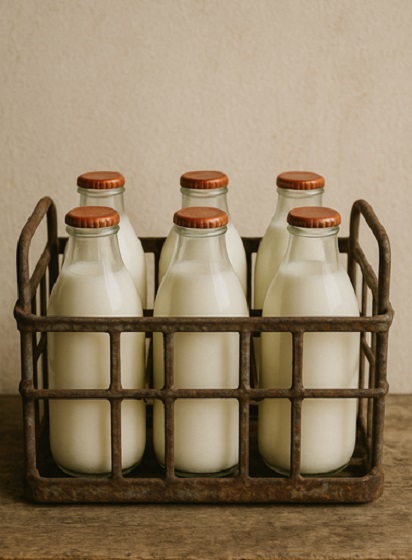
From the Frontier Centre for Public Policy
Senior Fellow Brian Giesbrecht says it’s time to stop coddling millionaire dairy barons. Supply management drives up grocery bills, blocks trade and makes Canada a global joke. Australia fixed it—we can too.
Canadians are paying the price for political cowardice
Canada’s outdated supply management system forces the average Canadian family to spend $500 a year to protect a small group of wealthy dairy producers, most of them millionaires. This protectionist regime enriches a few at the expense of many, drives up food prices and undermines Canada’s credibility in trade negotiations. It no longer fits the times, and it has to go.
Let’s be clear: this isn’t about attacking dairy farmers. Most are hardworking, conscientious people who’ve built their lives around a system they didn’t create. They rise early, work long hours, rarely take holidays and deserve fair compensation if the system is dismantled. But good intentions don’t justify bad policy.
Under supply management, the government tightly controls how much dairy, poultry and eggs Canadian farmers can produce and imposes steep tariffs—sometimes more than 400 per cent—on imported products to limit competition. The result is artificially high prices, limited consumer choice and retaliatory tariffs from other countries.
This system, once designed to protect small family farms, is now dominated by fewer than 10,000 large operations, many worth millions. It no longer serves its original purpose, yet it remains in place because of political cowardice. Pierre Poilievre and Mark Carney both know the system is flawed but won’t challenge it. Why? Because it’s popular in Quebec, a province with significant electoral influence. No party wants to risk alienating those voters.
Australia and New Zealand once faced similar challenges. They phased out their systems, fairly compensated farmers through levies and built globally competitive dairy sectors. We can too. Trump’s return to power may force our hand, but it also gives us an opportunity to act on what we should have done long ago.
Even without outside pressure, the inefficiency is clear. Every year, billions of litres of milk are dumped when quotas are exceeded. At the same time, Canadian companies like Saputo are forced to relocate abroad to reach global markets. Our artisan cheese producers are trapped in a small domestic economy while foreign markets block our exports in retaliation for our own protectionism.
The hypocrisy is glaring. We call for free trade but defend a system that imposes up to 400 per cent tariffs on imports. Our global partners are right to scoff.
Trump did. In a social media post, he wrote: “Canada is a very difficult country to TRADE with, including the fact that they have charged our Farmers as much as 400 per cent Tariffs, for years, on Dairy Products.” And in his July 10 letter announcing 35 per cent tariffs on Canadian goods, he added: “Canada charges extraordinary Tariffs to our Dairy Farmers—up to 400 per cent—and that is even assuming our Dairy Farmers even have access to sell their products to the people of Canada.”
This isn’t just an American objection. High-quality dairy from France and Germany can’t be sold in Canada because of our import barriers. Their governments respond by blocking our dairy exports. Canada loses jobs, investment and credibility.
Some defenders claim foreign dairy is unsafe. But countries like France and Germany have food safety standards as strict as ours. And Canada already has legal mechanisms to block substandard imports. We don’t need tariffs for that.
Former Liberal MP Martha Hall Findlay said it plainly: supply management is a dead end. So did Maxime Bernier, who made it a central issue during his bid for the Conservative leadership. The dairy lobby made sure he didn’t win. And we’re still stuck.
Now, all parties have voted to exclude supply management from current trade talks. We are entering negotiations that demand fair treatment while protecting one of the most unfair systems in the developed world. It’s a national embarrassment.
But this can change. A phased buyout funded by a modest, temporary levy—not taxpayer dollars—could end supply management and open our dairy sector to global opportunity. Australia and New Zealand proved it works. Their citizens don’t pay $10 for butter or yogurt. Neither should we.
It’s time to stop protecting the past. Dismantle the system. Free our producers. Lower grocery bills. Restore our credibility.
Maxime Bernier saw it in 2017. Trump is saying it again in 2025.
This time, we’d better listen.
Brian Giesbrecht is a retired judge and senior fellow at the Frontier Centre for Public Policy.
-

 Alberta1 day ago
Alberta1 day agoMedian workers in Alberta could receive 72% more under Alberta Pension Plan compared to Canada Pension Plan
-
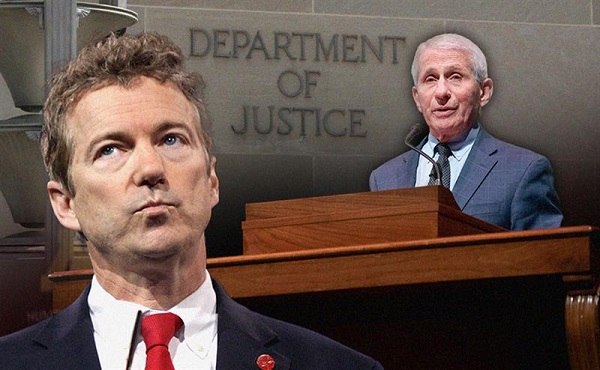
 COVID-191 day ago
COVID-191 day agoSen. Rand Paul: ‘I am officially re-referring Dr. Fauci to the DOJ’
-

 Alberta2 days ago
Alberta2 days agoAlberta ban on men in women’s sports doesn’t apply to athletes from other provinces
-
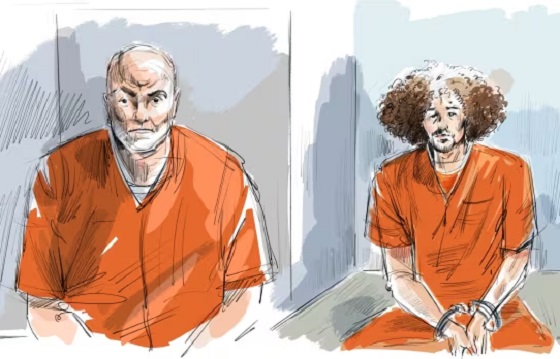
 National2 days ago
National2 days agoCanada’s immigration office admits it failed to check suspected terrorists’ background
-
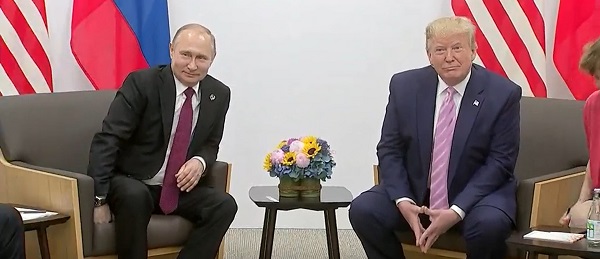
 conflict2 days ago
conflict2 days agoTrump’s done waiting: 50-day ultimatum for Putin to end Ukraine war
-
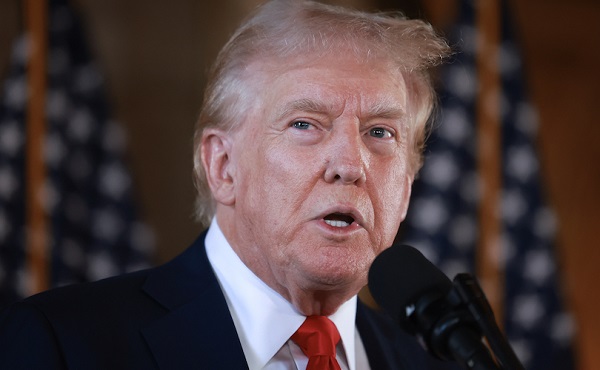
 Education1 day ago
Education1 day agoTrump praises Supreme Court decision to allow dismantling of Department of Education
-

 Energy2 days ago
Energy2 days agoActivists using the courts in attempt to hijack energy policy
-

 Daily Caller2 days ago
Daily Caller2 days ago‘Strange Confluence Of Variables’: Mike Benz Wants Transparency Task Force To Investigate What Happened in Butler, PA






